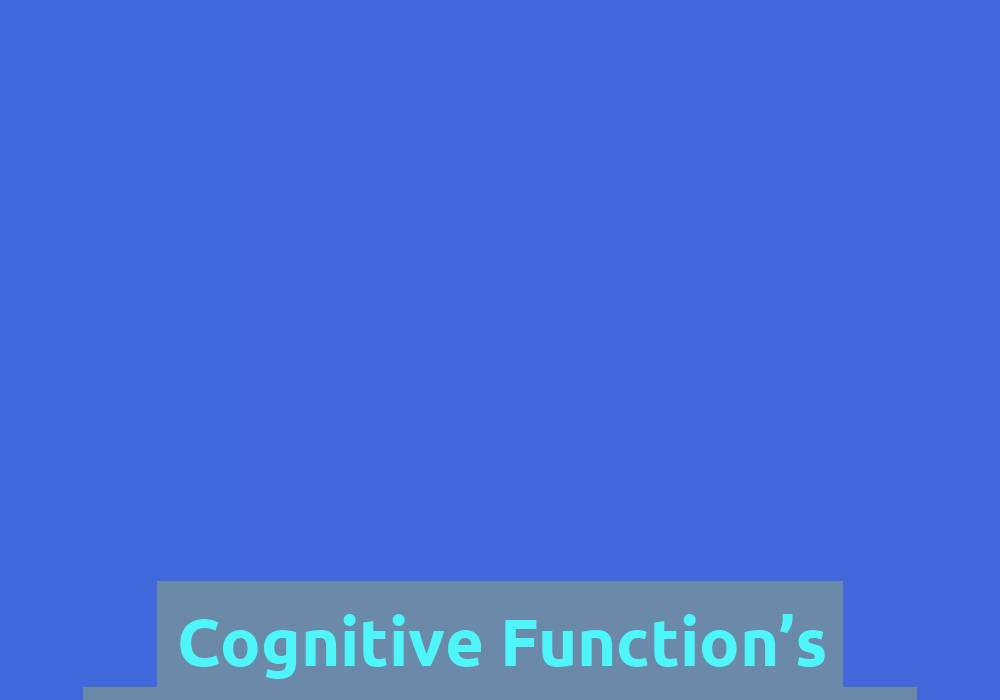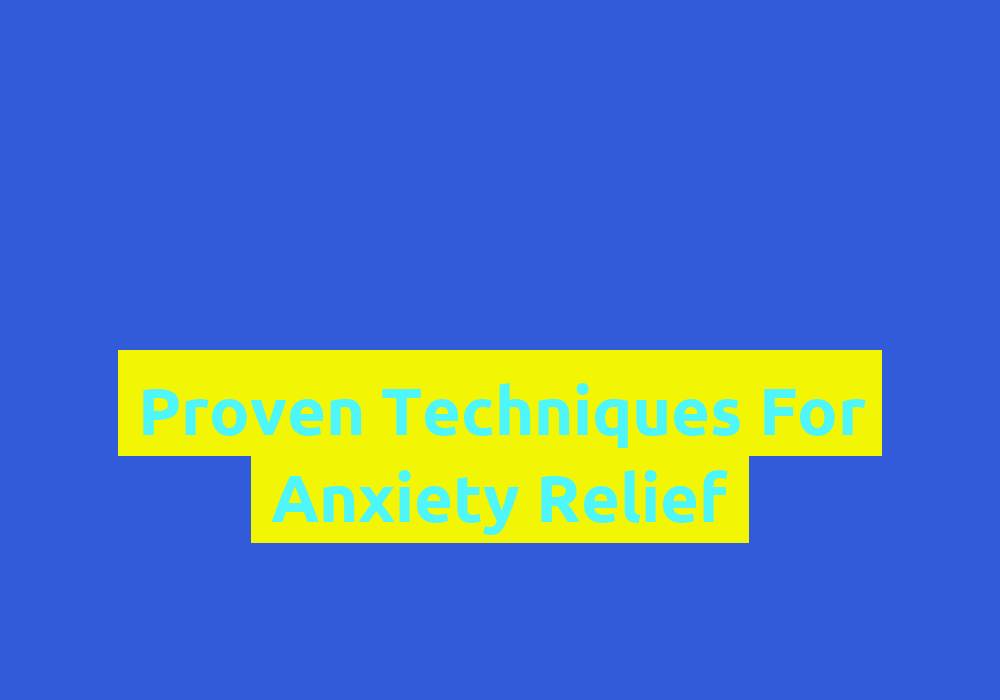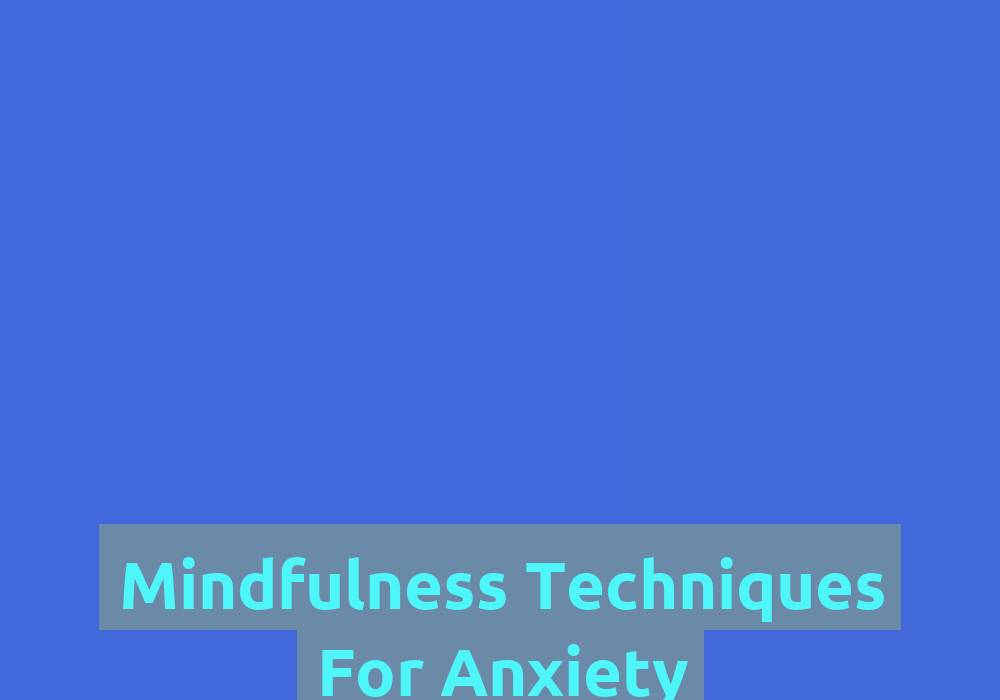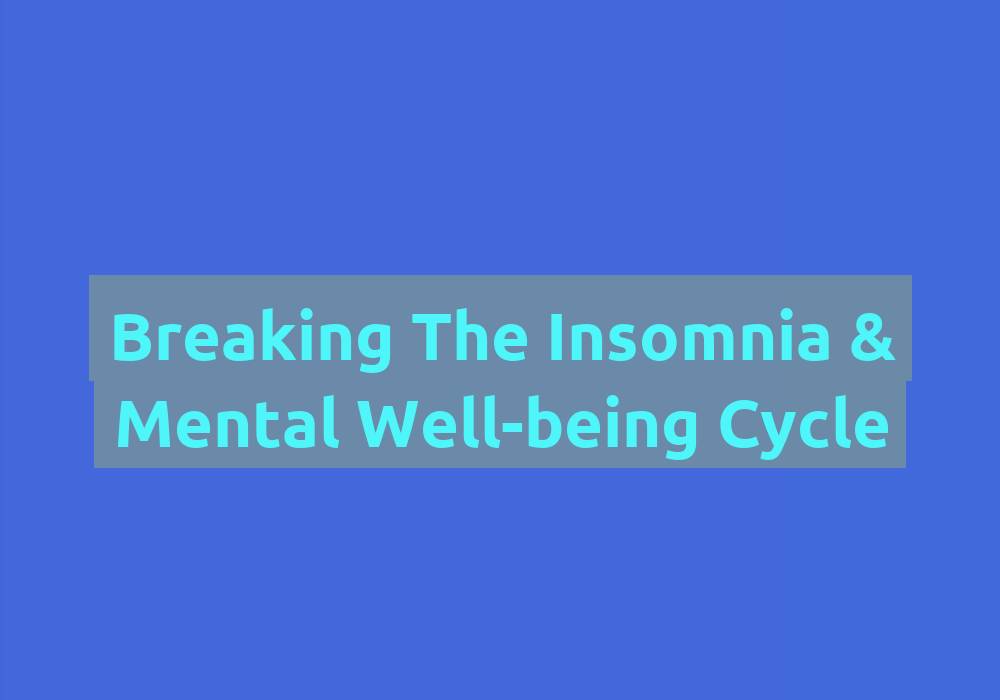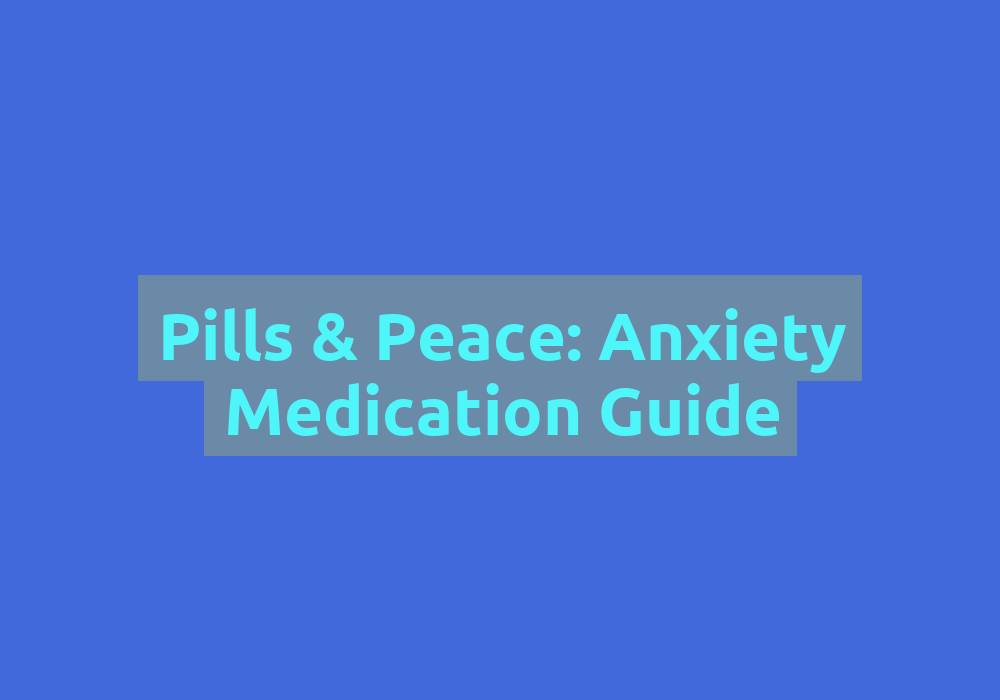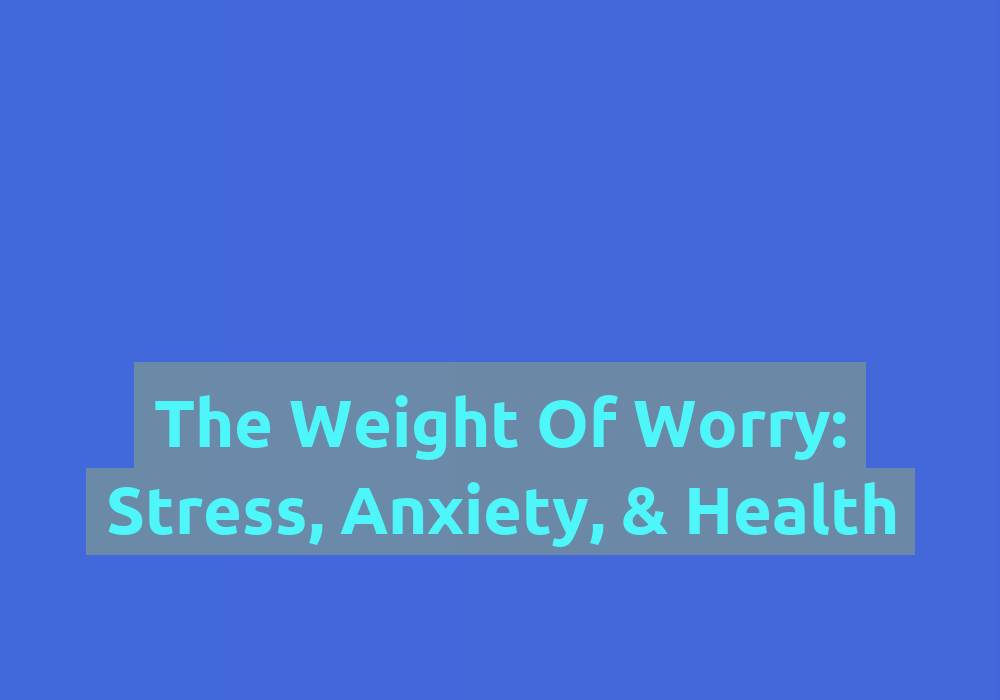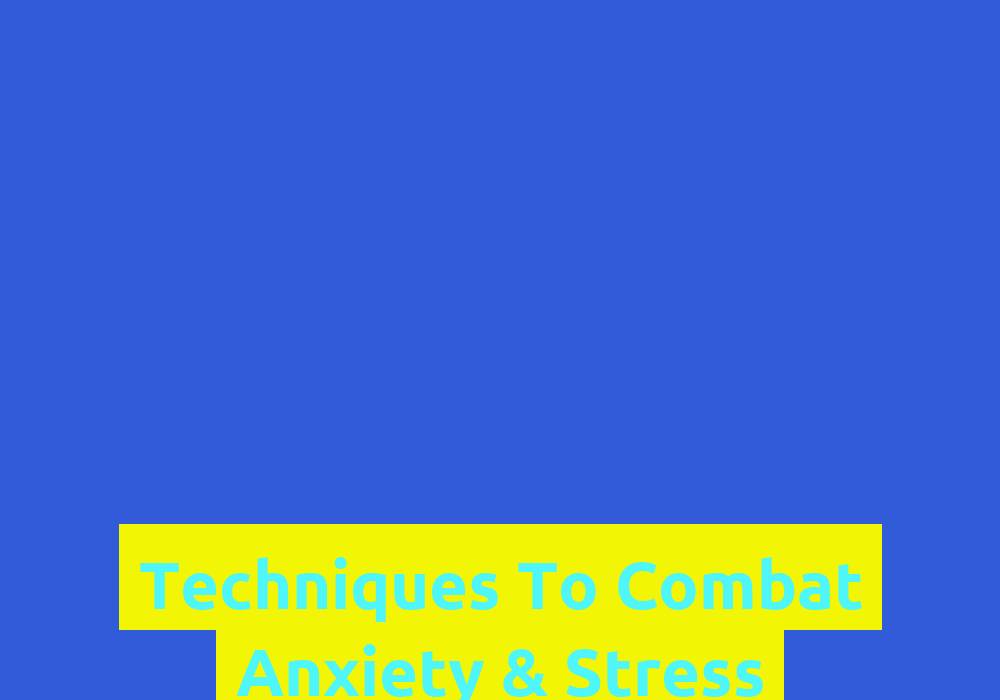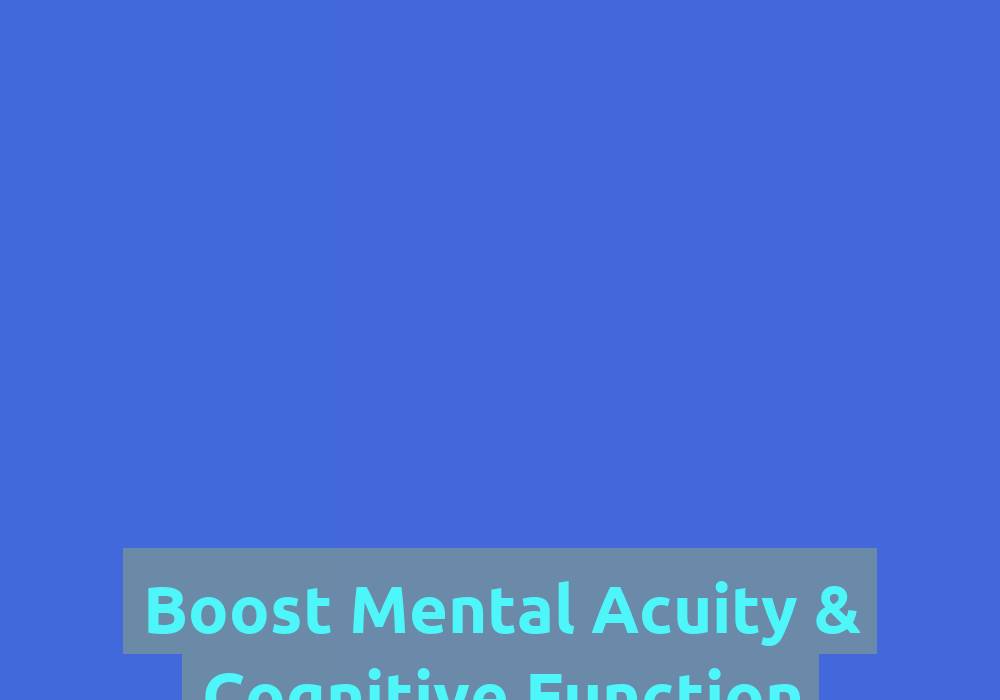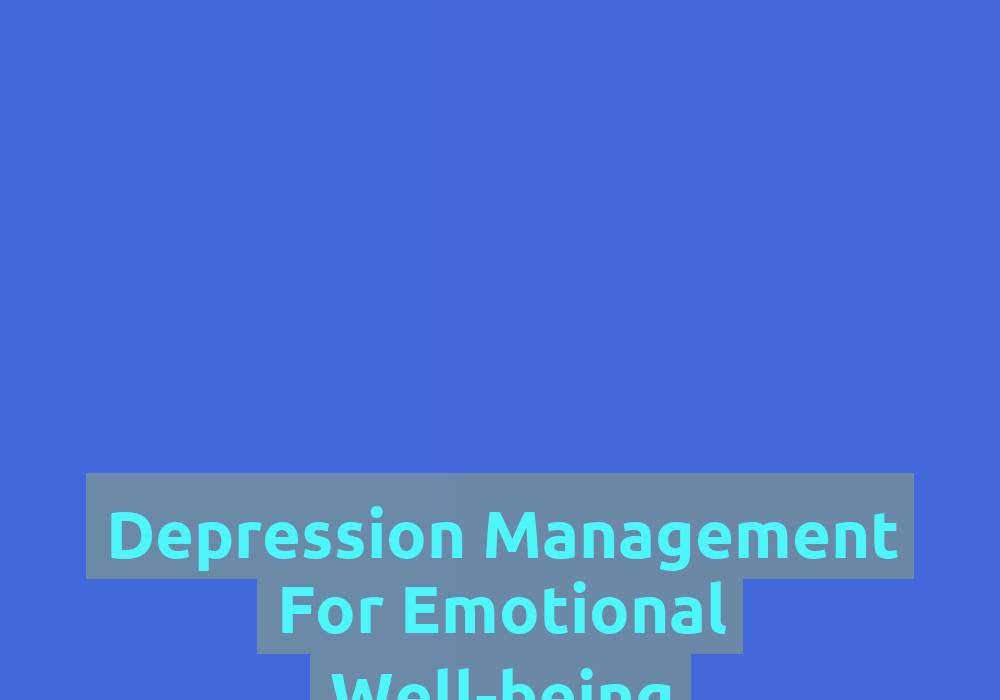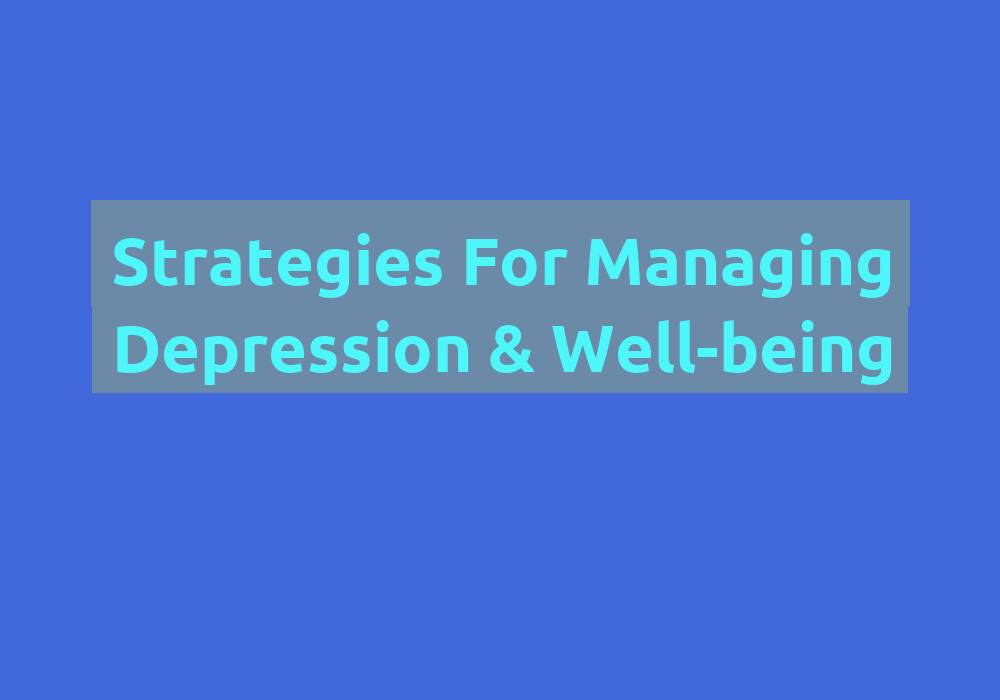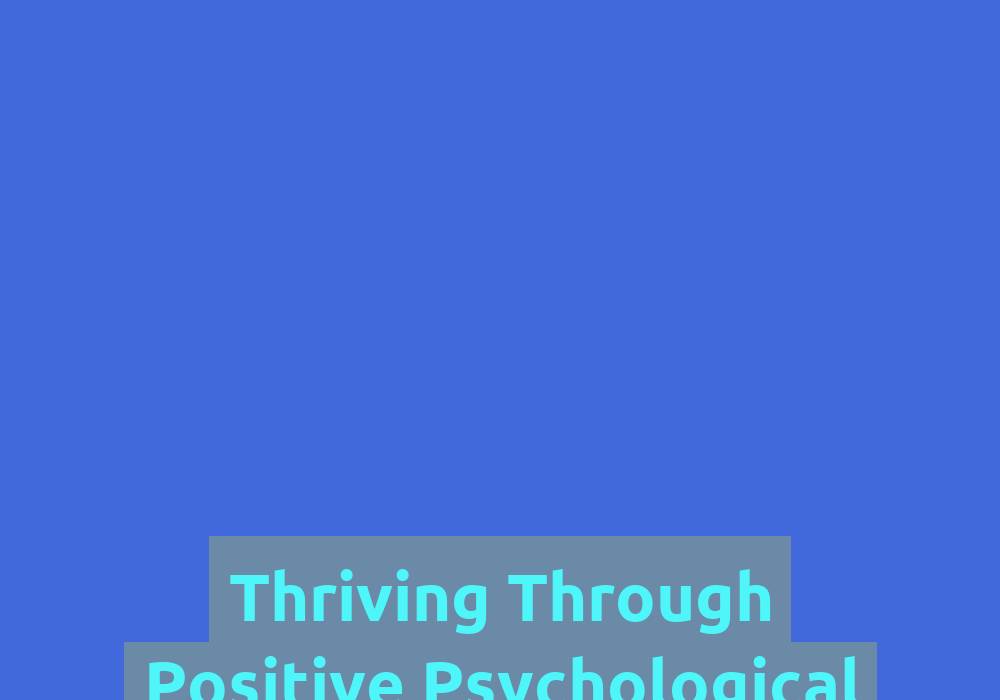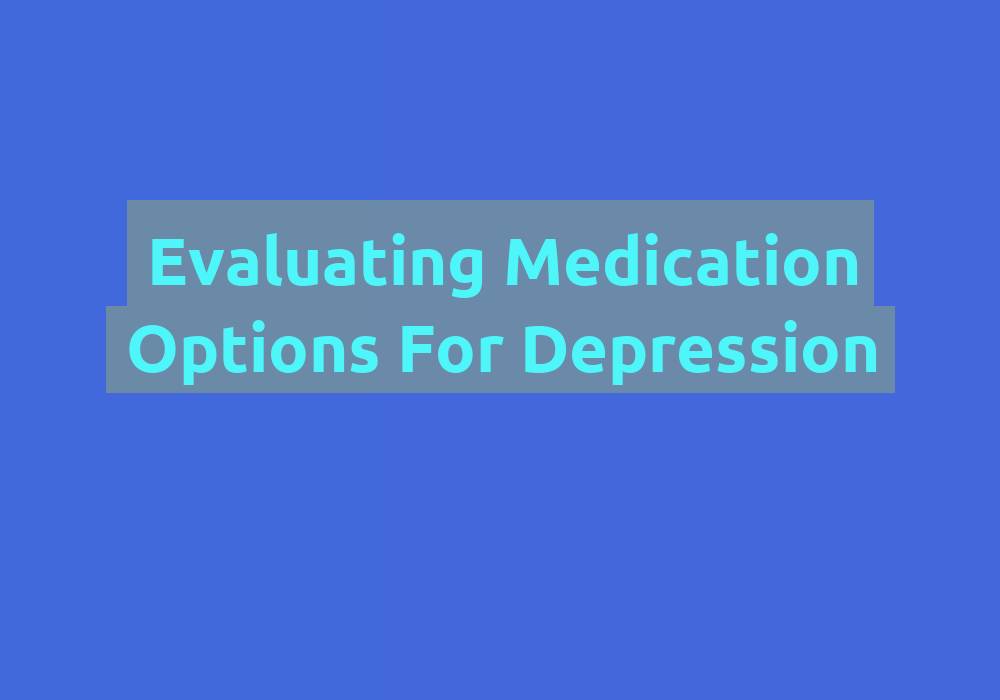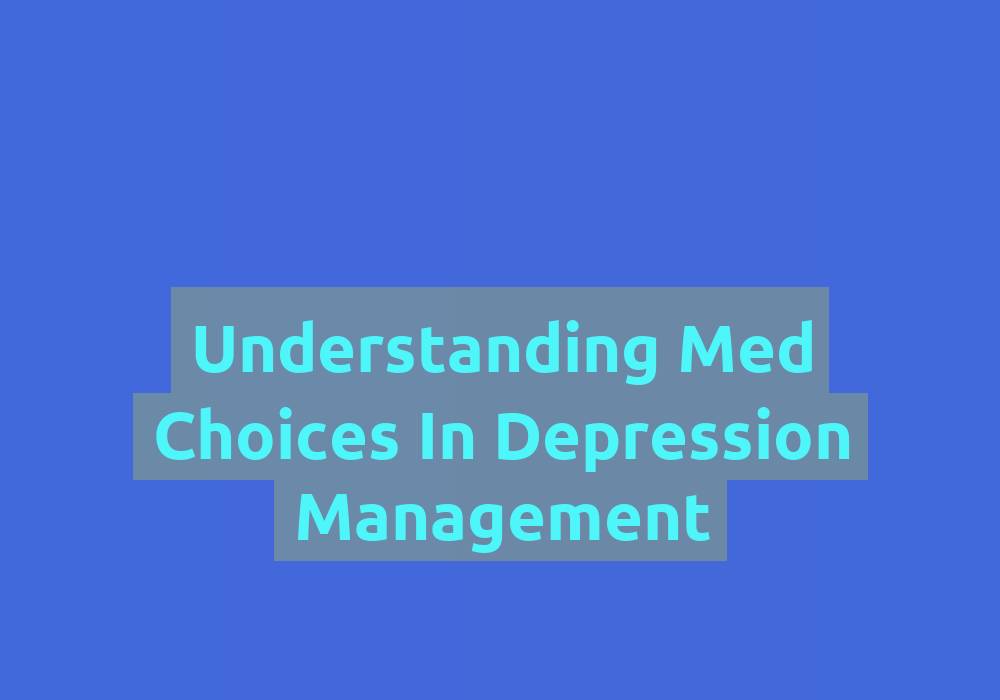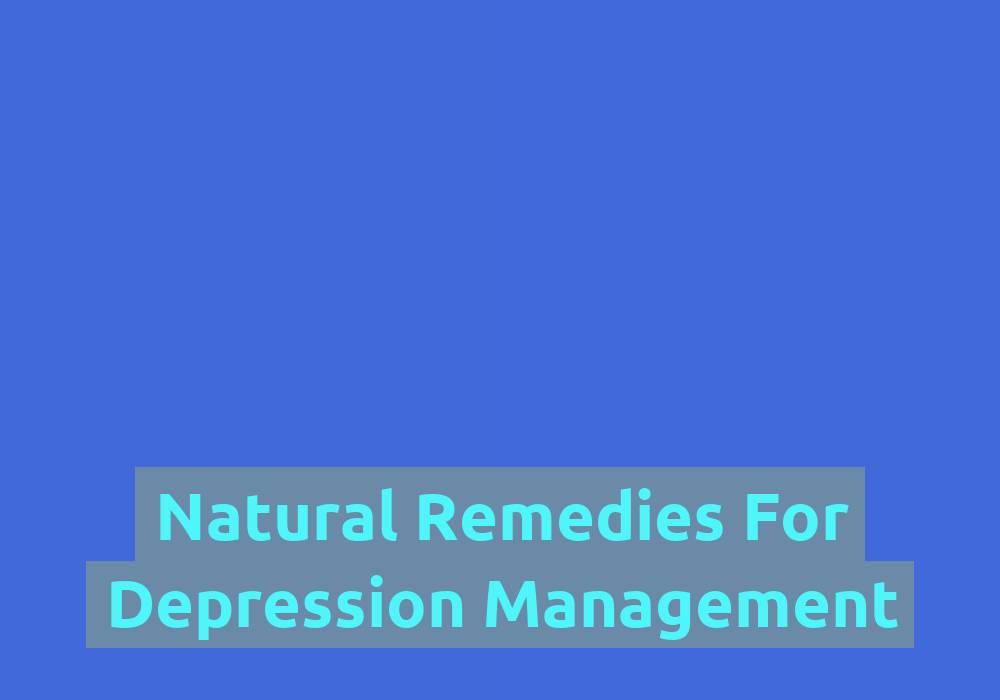Natural Solutions in Depression Management

Depression is a serious mental health condition that affects millions of people worldwide. While there are various conventional treatments available, many individuals are seeking natural solutions to manage their symptoms. In this article, we will explore some effective natural remedies and lifestyle changes that can help in the management of depression.
Understanding Depression
Before delving into the natural solutions, it is important to understand what depression is and how it affects individuals. Depression is characterized by persistent sadness, loss of interest or pleasure in activities, changes in appetite or sleep patterns, loss of energy, and difficulty concentrating. It can have a significant impact on a person’s quality of life, relationships, and daily functioning.
Depression is not simply feeling down or having a bad day. It is a complex mental health disorder that affects the brain chemistry and can disrupt one’s emotional and physical well-being. It is important to recognize the signs and symptoms of depression in order to seek appropriate help and support.
Natural Remedies for Depression
- Regular Exercise: Engaging in regular physical activity has been proven to be an effective natural remedy for depression. Exercise releases endorphins, which are known as feel-good hormones that improve mood and reduce symptoms of depression. Incorporating activities such as walking, jogging, dancing, or yoga into your daily routine can have a positive impact on your mental well-being.
Regular exercise not only improves physical fitness but also helps in reducing stress and anxiety. It increases the production of neurotransmitters like serotonin and dopamine, which play a crucial role in regulating mood and emotions. Moreover, exercise can provide a sense of accomplishment and boost self-esteem, which are often affected by depression.
Some additional benefits of exercise in managing depression include improved sleep quality, increased energy levels, and enhanced cognitive function. It is important to find an exercise routine that is enjoyable and suits your preferences and capabilities.
- Dietary Considerations: Making certain dietary changes can also contribute to managing depression. Consuming a balanced diet rich in fruits, vegetables, whole grains, and lean proteins can provide essential nutrients that support brain health. Additionally, including foods high in omega-3 fatty acids, such as fatty fish, flaxseeds, and walnuts, may have a positive effect on mood.
Certain nutrients, such as omega-3 fatty acids, B vitamins, vitamin D, and magnesium, have been linked to better mental health and may help alleviate symptoms of depression. Omega-3 fatty acids, in particular, play a crucial role in brain function and have anti-inflammatory properties that may benefit individuals with depression.
It is important to note that while a healthy diet can support overall well-being, it is not a replacement for professional treatment. It is always recommended to consult with a healthcare professional or a registered dietitian before making any significant dietary changes.
- Herbal Supplements: Several herbal supplements have shown promise in alleviating symptoms of depression. St. John’s Wort, for example, has been used for centuries as a natural remedy for depression. However, it is important to consult with a healthcare professional before starting any herbal supplements, as they can interact with certain medications.
St. John’s Wort is one of the most commonly studied herbal supplements for depression. Research suggests that it may be effective in reducing mild to moderate symptoms of depression. However, it is important to note that herbal supplements are not regulated by the FDA, and their safety and effectiveness vary. It is crucial to consult with a healthcare professional to determine the appropriate dosage and potential interactions with other medications.
Other herbal supplements that have been studied for their potential benefits in depression management include Saffron, SAMe, and Rhodiola Rosea. However, more research is needed to establish their efficacy and safety.
- Essential Oils: Aromatherapy using essential oils can be a beneficial addition to depression management. Certain scents, such as lavender, bergamot, and chamomile, have calming and mood-enhancing properties. Diffusing these oils or using them in massage oils can promote relaxation and improve overall well-being.
Aromatherapy is a complementary therapy that utilizes the powerful scents of essential oils to promote relaxation, relieve stress, and uplift mood. Essential oils can be used in various ways, such as in a diffuser, added to bathwater, or applied topically in diluted forms.
Lavender essential oil is well-known for its calming properties and can help promote a sense of peace and relaxation. Bergamot oil has mood-enhancing qualities and may help reduce anxiety and stress. Chamomile oil, with its soothing aroma, can aid in relaxation and promote better sleep.
It is important to choose high-quality essential oils and use them safely, following proper dilution guidelines and precautions. Some essential oils may cause skin irritation or interact with certain medications, so it is advisable to do thorough research or consult with a qualified aromatherapist before use.
Lifestyle Changes for Depression Management
Apart from natural remedies, certain lifestyle changes can also have a significant impact on managing depression. Consider incorporating the following practices into your daily routine:
- Establishing a Routine: Creating a structured daily routine can provide a sense of stability and purpose, which is essential when dealing with depression. Set specific times for waking up, meals, work or activities, and bedtime to establish a sense of order and control in your life.
Having a routine helps in organizing daily tasks, reducing decision-making stress, and maintaining a sense of normalcy. It provides a framework for productivity and can help individuals with depression regain a sense of control over their lives.
- Social Support: Building and maintaining a strong support system is crucial in managing depression. Sharing your feelings and experiences with trusted friends or family members can provide emotional support and help alleviate the sense of isolation that often accompanies depression. Joining support groups or seeking professional counseling can also be helpful.
Social support plays a vital role in managing depression. It provides a sense of belonging, reduces feelings of loneliness, and offers opportunities for emotional expression and validation. Sharing experiences with others who have similar struggles can provide a sense of empathy and understanding.
It is important to reach out to trusted individuals who can provide support and actively engage in activities that foster social connections. Professional therapists or counselors can also offer guidance and help develop coping strategies for managing depression.
- Mindfulness and Meditation: Practicing mindfulness and meditation techniques can help individuals with depression become more aware of their thoughts and emotions, and learn to observe them without judgment. These practices promote relaxation, reduce stress, and increase self-awareness, which can aid in managing depressive symptoms.
Mindfulness involves paying attention to the present moment, non-judgmentally, and accepting it without resistance. It helps individuals become more aware of their thoughts and feelings, allowing them to respond rather than react impulsively. Meditation, on the other hand, focuses on training the mind to achieve a state of calm and clarity.
Research suggests that mindfulness-based practices can reduce symptoms of depression, improve emotional well-being, and increase overall resilience. Various techniques, such as deep breathing exercises, body scans, and guided imagery, can be incorporated into daily routines to promote mindfulness and relaxation.
- Quality Sleep: Ensuring adequate sleep is essential for mental well-being. Establish a regular sleep schedule, create a relaxing bedtime routine, and make your sleep environment conducive to restful sleep. Avoiding caffeine and electronic devices before bedtime can also contribute to better sleep quality.
Sleep disturbances are common in individuals with depression, and poor sleep quality can exacerbate depressive symptoms. Establishing a consistent sleep routine helps regulate the body’s internal clock and promotes better sleep hygiene.
Creating a relaxing bedtime routine can signal the body to wind down and prepare for sleep. This may include activities such as reading, taking a warm bath, practicing relaxation techniques, or listening to soothing music. It is important to create a sleep environment that is free from distractions, comfortable, and conducive to restful sleep.
Seeking Professional Help
Despite the effectiveness of natural remedies and lifestyle changes, it is important to remember that depression is a complex condition that may require professional help. If symptoms persist or worsen, it is crucial to seek guidance from a qualified healthcare professional. They can provide an accurate diagnosis, recommend appropriate treatment options, and offer the necessary support throughout your journey to recovery.
Professional help can involve therapy, counseling, medication, or a combination of these approaches. A mental health professional can assess the severity of depression, identify underlying causes, and tailor a treatment plan to address individual needs.
In conclusion, managing depression using natural solutions involves a holistic approach that incorporates various remedies and lifestyle changes. Regular exercise, dietary considerations, herbal supplements, and essential oils can all contribute to improved mental health. Additionally, establishing a routine, seeking social support, practicing mindfulness and meditation, and prioritizing quality sleep are important lifestyle changes that can aid in depression management. Remember, always consult with a healthcare professional for personalized advice and guidance on managing depression effectively.
1. What is depression and how does it affect individuals?
Depression is a serious mental health condition characterized by persistent sadness, loss of interest or pleasure in activities, changes in appetite or sleep patterns, loss of energy, and difficulty concentrating. It can have a significant impact on a person’s quality of life, relationships, and daily functioning.
2. Can regular exercise help in managing depression?
Yes, engaging in regular physical activity has been proven to be an effective natural remedy for depression. Exercise releases endorphins, which are known as feel-good hormones that improve mood and reduce symptoms of depression. It also helps in reducing stress and anxiety, improving sleep quality, increasing energy levels, and enhancing cognitive function.
3. Are there any dietary considerations that can help in managing depression?
Yes, making certain dietary changes can contribute to managing depression. Consuming a balanced diet rich in fruits, vegetables, whole grains, and lean proteins provides essential nutrients that support brain health. Including foods high in omega-3 fatty acids, such as fatty fish, flaxseeds, and walnuts, may have a positive effect on mood. However, it is important to consult with a healthcare professional or a registered dietitian before making significant dietary changes.
4. Can essential oils be beneficial in managing depression?
Yes, aromatherapy using essential oils can be a beneficial addition to depression management. Certain scents like lavender, bergamot, and chamomile have calming and mood-enhancing properties. Diffusing these oils or using them in massage oils can promote relaxation and improve overall well-being. It is important to choose high-quality essential oils and use them safely, following proper dilution guidelines and precautions.
